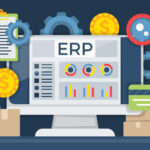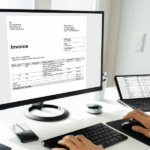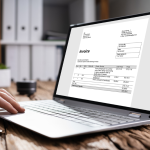The digital economy is rapidly evolving, and businesses that don’t keep up risk falling behind. One area where this shift is becoming particularly evident is in invoicing. Malaysia’s move towards mandatory e-invoicing, through the MyInvois platform, is not just a trend; it’s a government directive that small businesses must prepare for. In this post, we’ll explore why small businesses should begin preparing for the MyInvois e-invoicing guidelines now, and how they can ensure a smooth transition to this new system.
The Shift Toward E-Invoicing in Malaysia
In an effort to streamline business operations, increase transparency, and reduce tax evasion, Malaysia is embracing the e-invoicing revolution. By leveraging the MyInvois platform, the government aims to standardize invoicing procedures across industries, making it easier to track business transactions in real-time. This shift is a significant part of Malaysia’s broader strategy to modernize the tax system and align with global best practices in digital transformation.
What Does This Mean for Small Businesses?
For small businesses, this new development is both a challenge and an opportunity. While many small businesses have relied on traditional, manual methods of invoicing, the introduction of MyInvois is pushing them to adapt to a more streamlined and digital approach. The key challenge lies in transitioning to a system that requires businesses to issue electronic invoices in a standardized format, ensuring real-time submission to the tax authorities.
Small businesses that don’t prepare now risk falling behind, not only in terms of compliance but also in terms of operational efficiency. Preparing for e-invoicing today will not only help businesses meet government requirements but will also open up new avenues for optimizing invoicing and finance processes.
Benefits of E-Invoicing for Small Businesses
Before delving into the specifics of how to prepare for MyInvois, it’s important to understand the benefits that small businesses will experience once they adopt e-invoicing:
- Increased Efficiency
Manual invoicing is time-consuming, prone to errors, and often requires a significant amount of administrative effort. By transitioning to e-invoicing, businesses can automate much of the invoicing process, saving valuable time that can be redirected toward core business activities.
- Cost Reduction
E-invoicing eliminates the need for paper, printing, postage, and other manual handling costs. This can result in significant savings over time, particularly for small businesses operating on tight margins.
- Improved Accuracy and Reduced Errors
One of the main advantages of electronic invoicing is its ability to reduce human error. Automated systems can check for common mistakes, such as incorrect calculations or missing information, which helps ensure that invoices are processed accurately.
- Faster Payments
With the integration of real-time submission to the government’s tax system, e-invoices can speed up payment cycles. Clients who receive e-invoices can process them faster, which can improve cash flow for small businesses.
- Better Compliance
Compliance with tax regulations is crucial for any business. The move to e-invoicing will help small businesses stay in line with Malaysian tax laws. By using MyInvois, businesses can ensure that their invoices are properly formatted, submitted on time, and fully compliant with government standards.
- Environmental Impact
Going digital with invoicing means fewer paper invoices and less reliance on traditional postal services, which reduces a business’s overall environmental footprint. This is a step toward sustainable business practices.
The MyInvois Guidelines: What You Need to Know
To ensure compliance with the new e-invoicing system, small businesses must familiarize themselves with the MyInvois guidelines. The platform is designed to standardize the invoicing process, meaning businesses will have to adapt their existing invoicing methods to meet these new standards. Key components of the MyInvois guidelines include:
- Structured Data Format
Unlike traditional invoicing, MyInvois requires invoices to be submitted in a standardized electronic format (XML), ensuring that the data is structured and can be easily processed by the tax authority.
- Real-Time Submission
Businesses will need to submit invoices to the MyInvois platform in real-time, ensuring that the government has access to business transaction data as it happens. This requires integration between business systems and MyInvois.
- Digital Signature
Invoices submitted through MyInvois must be digitally signed to ensure their authenticity. This adds an extra layer of security to the invoicing process, ensuring that the data cannot be tampered with.
- Tax Identification Number (TIN)
Each invoice must include the business’s Tax Identification Number, which will be used to link the invoice to the appropriate business and tax records.
- Invoice Validation
MyInvois has a built-in invoice validation mechanism that checks for compliance with the required format and tax regulations.
- Archiving Requirements
MyInvois mandates that businesses retain a digital copy of all invoices submitted through the platform for a specified retention period. The system facilitates the archiving process by storing e-invoices securely, and businesses are required to maintain access to these archived invoices for future reference.
Steps for Small Businesses to Prepare for MyInvois
Preparation is key. The sooner small businesses start preparing for MyInvois, the smoother their transition will be. Below are the key steps small businesses should take to ensure they are ready for the new system:
1. Understand the Requirements
The first step is to thoroughly review the MyInvois guidelines and ensure that your business understands the technical and regulatory requirements. Familiarize yourself with the structure of e-invoices, the digital signature process, and how real-time submission works.
2. Choose the Right E-Invoicing Software
Small businesses need to ensure that their existing invoicing systems are compatible with MyInvois. If they are not, it may be necessary to invest in new invoicing software that can handle the MyInvois format and integrate with the government platform. Many software providers now offer solutions tailored to MyInvois compliance, and selecting the right one will be crucial for a smooth transition.
3. Integrate with MyInvois
The e-invoicing system will need to be integrated into your business processes. Whether that means upgrading your accounting software, training your staff on new processes, or working with an external consultant, integration is essential for seamless invoicing.
4. Train Staff
Once the technical setup is complete, businesses should train their employees on how to use the new system. This may include invoicing staff, accountants, and anyone else involved in the invoicing process. The transition to digital invoicing should be as smooth as possible to minimize disruption.
5. Test the System
Before going live, businesses should run tests to ensure that everything works correctly. Testing should involve generating and submitting test invoices to MyInvois, ensuring that the system can properly process them. This helps catch any issues early on and prevent potential problems down the road.
6. Stay Updated
E-invoicing regulations and technology are constantly evolving. Small businesses should ensure they stay updated on any changes to the MyInvois guidelines, as well as any new tools or services that may become available to streamline the process.
Conclusion: Advintek’s Role in Your E-Invoicing Transition
Advintek is committed to supporting small businesses through this digital transformation. With our expertise in providing e-invoicing solutions, we can help your business navigate the complexities of MyInvois compliance. Our team is ready to assist with integration, training, and ongoing support, ensuring that your business is fully prepared for the e-invoicing mandate.
By preparing now, small businesses can not only ensure compliance but also improve their operational efficiency and financial management. Embracing e-invoicing is a step toward a more streamlined, transparent, and future-ready business model. Let Advintek guide you through this transition, so you can focus on what truly matters—growing your business.









